CLIL in Dublin: Content and Language Integrated Learning
Trinity College
19th to 30th June 2017
Sunday 18 June 2017
Arrival at Dublin airport, transfer to Trinity College and accommodation.
(10:45 Turin-Frankfurt LH0297- 16:05 Frankfurt-Dublin LH0980)
Arrival at 18:15 local hour (+1 Italy). Transfer by Aircoach Company (€ 7,00 single). Arrival in Dublin 19:00 (bus stop: Grafton Street and Trinity College). About 5’ walk to Trinity College (Nassau Gate)
Accomodation office : welcome, package with key and wifi codes)
Room n. 50.3.04 Accomodation type: RO
In the evening: walking tour nearby and dinner at a pub (Irish stew)
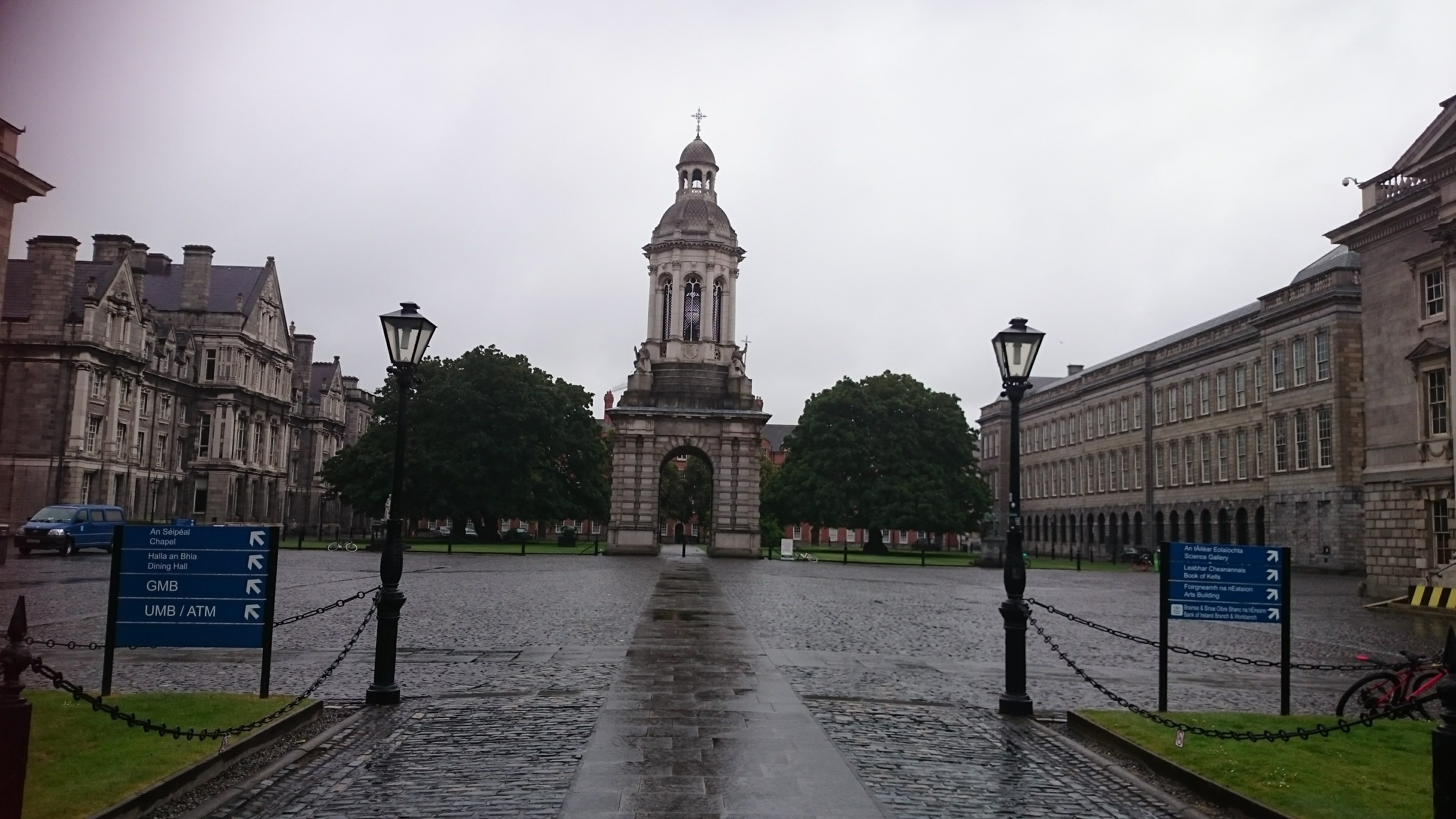
09:00 registration at Arts and Building conference centre. General meeting in a conference room.
European Dimension: 10 countries (Italy, Finland, Germany, Slovaskia, Spain, France, Latvia,Poland, Czech republic, Greece), 53 participants (3 from Italy)
3 Courses: Clil in Dublin (Content and Language Integrated Learning), English for teachers (A2-B1), Talking to people (Inquiry-based, Cooperative learning methodogy)
General presentation.
Introduction: objectives( share knowledge and helping), methodology, evaluation.
Ireland: History&Culture By Peter….
In the afternoon (13.30-15:00)
Guided tour in Dublin with Ciara.
And later: walking tour to Phoenix Park and Temple Bar.
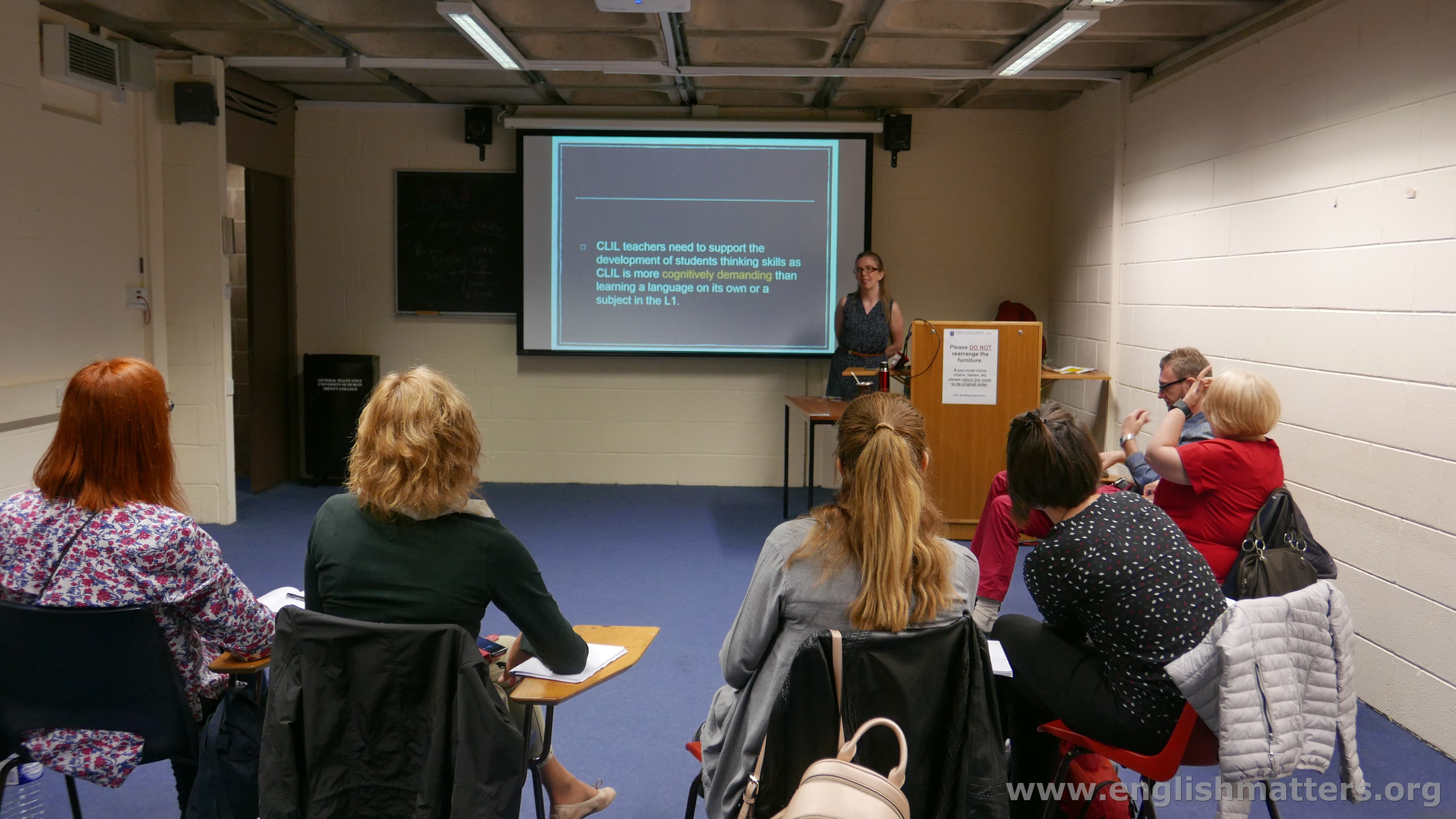
Clil: teaching subject through English. Concept, procedures and languages.
The 4Cs of Clil for planning lesson: content, cognition, communication, culture. What language knowledge CLIL teachers and learners need.
Sign up on padlet.com
Workshop: building a group portfolio: A week in Dublin
After the lessons:
Excursion to Howth, north of Dublin bay with some colleagues from Latvia and Slovakia
DART from Pearse Station (close to Trinity College), 30’ trip. Return ticket € 6.15.
Wednewsday 21st June 2017
09:00 Lesson with Ciara O’Hare
It’s a nine people group. The English level it’s medium.
Catchphrases
Short activity BICS AND CALP
Rewiew about LOTS and HOTS; thinking process involved: recalling, classifying, evaluating, reasoning, analysing, creating.
Exercises by drawing and picture.
WHAT’S SCAFFOLDING?
Something helping….
Playing quiz: Kahoo.it
How to play and how to create quiz.
Brain Break: why it’s important. Examples: see on Ciara's Class CLIL Portfolio (https://padlet.com/coh365/7lhb8k3dihda)
In the afternoon free time: National Leprachaun Museum (€ 13.00)
It’s a good manner to understand more about Irish tradition through fairy and folklore tales.
Visiting and sharing opinion with other colleagues it’s compare and speak about tradition in a globalization manner.
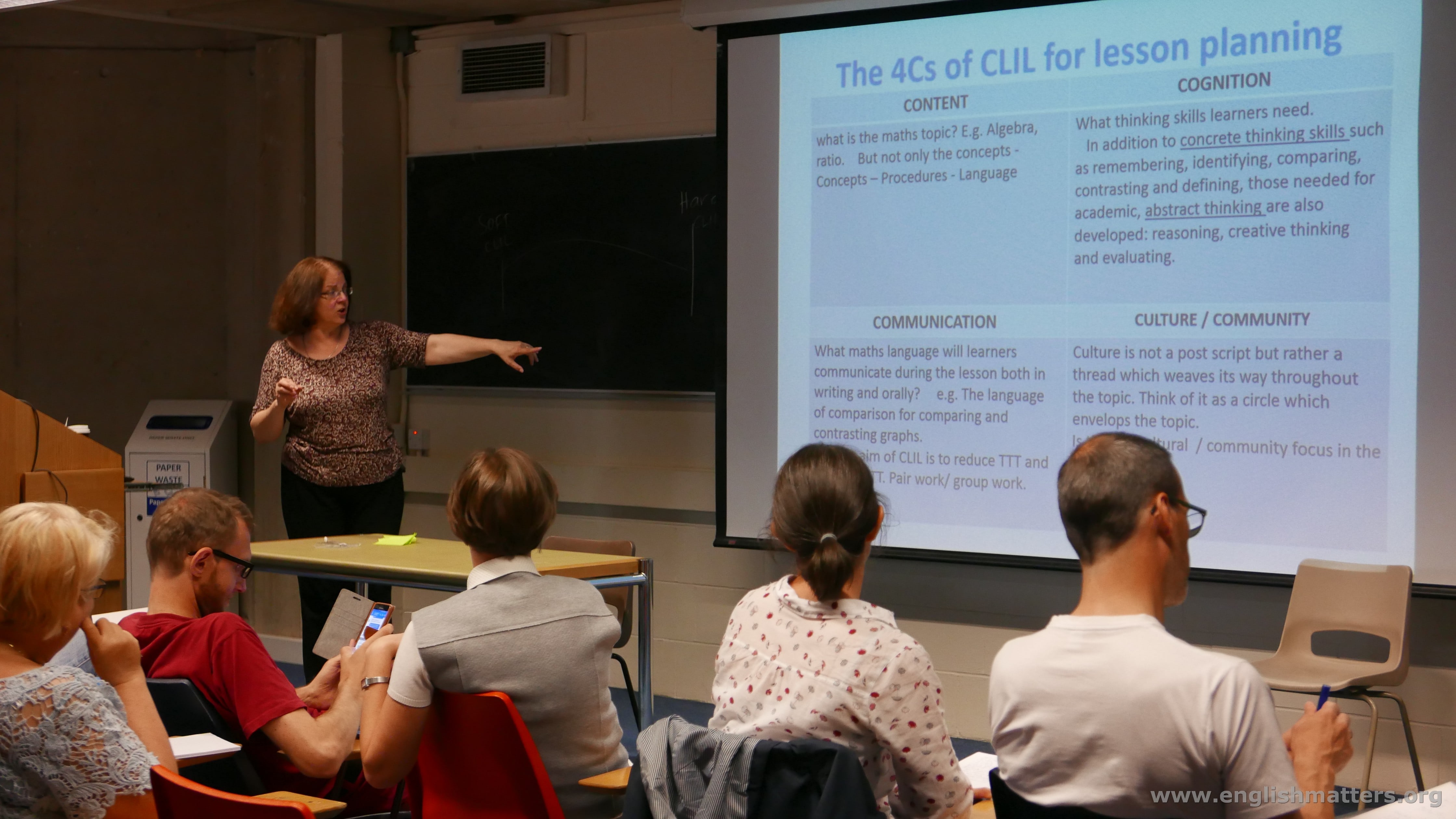
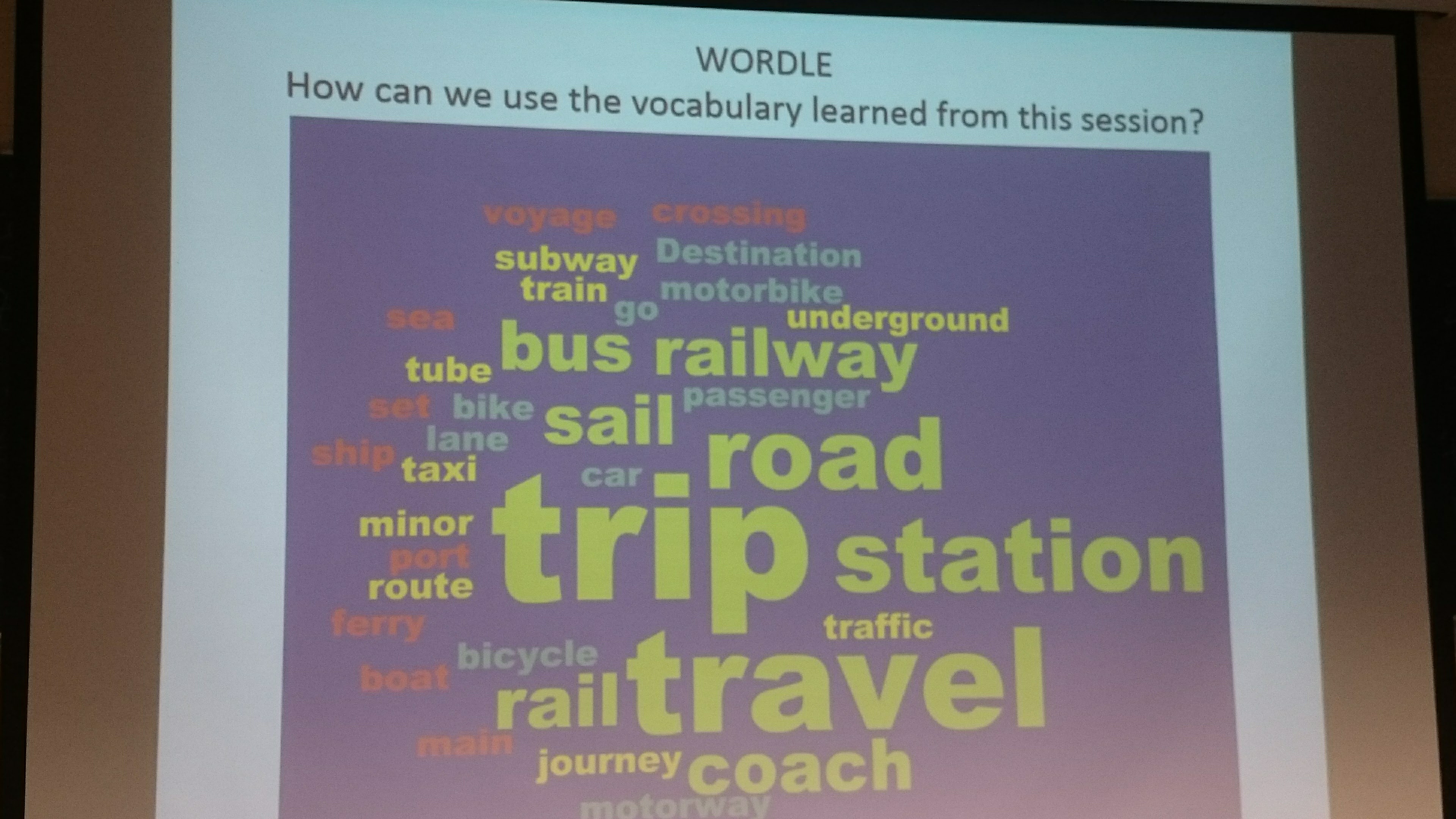
Morning lesson.
General discussion sharing free time experiences: interesting places to see and to visit.
Bics: tips for classroom language, short questions and short answers.
Skimming and scanning: tools strategies for speeding up reading finding the main idea, the GIST. Get only what you need.
Skimming. Reading through understanding the general idea of a passage. First and last paragraph and the first sentences of each paragraph.
Scanning Looking for specific words, numbers, details or answers, KEY WORDS. Underline or highline.
Brain break: Stop up the bus! Finding citie, adjectives, verbs, adverbs, professions, subjects trough a given letter.
Afternoon lesson.
Scaffolding video.
Group workshop. Compare learning &graphic organizers: think, pair and share.
Through the discussion the evidence that a lot of countries are looking for the best educational system. The main problem is how to organise the gap from primary and secondary school.
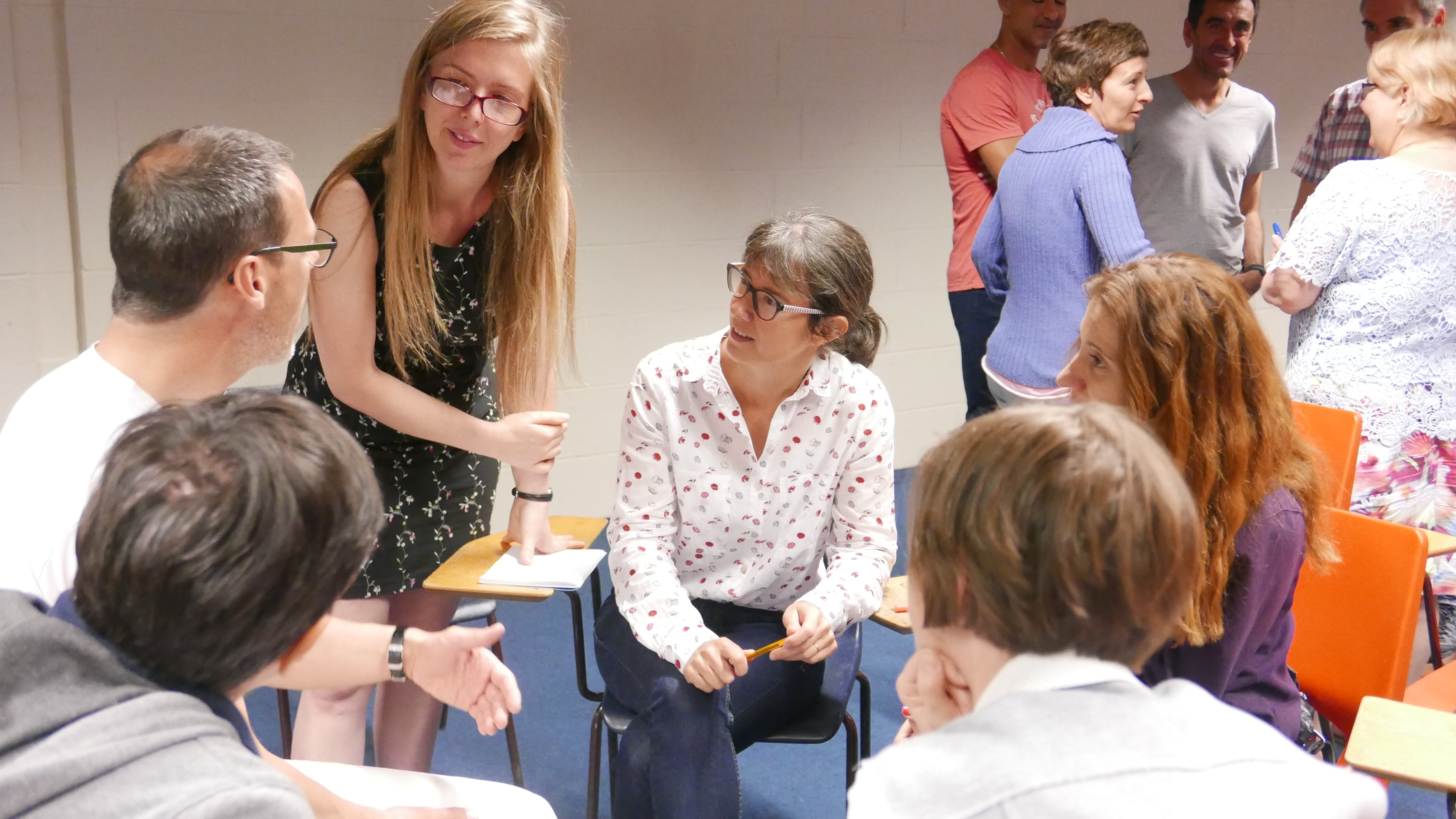
Free time: excursion to Dalkey. By Dart train 15’. Return ticket: € 6,85.
Dalkey It’ a small village on the south coast of Dublin, with an impressive shoreline calling Sorrento terrance and coast.
Morning lesson
Fundamental CLIL review with Edoardo, the Spanish coordinator. I remember us that we are not be afraid in speaking and teaching through English language.
We gave us a lot of examples about CLIL tools.
Creating Clil tasks for field project at National Museum of Ireland – Archaeology.
Contexts4Content: three slides developing the CLIL A3 (analyse LofL, add LforL, apply LthroughL)
Worksheet example.
There aren’t other teacher s for my subject and that’s why I decided, only in this case, to work alone, sorry… not in a Clil way, but I would like to prepare something to share with my colleagues and my students. My contexts4content about Archaelogy Museum will be about facilities for visibility impaired people.
Afternoon lesson
Visiting National Museum of Ireland- Archaeology.
Free time:
National Gallery (the Taking of Christ by Michelangelo Merisi da Caravaggio is not there in this moment being currently on display in the exhibition Beyond Caravaggio in the Scottish National Gallery, Edinburgh -until September 2017).
The Giant’s Garden: Oscar Wilde statue.
Outside the garden: amazing talking time with un expert and funny guide, in period uniform, about 1916 revolution and not only… (I told as that a perfect Irish man get three things: it’s old, short cough and money in the pocket. He pretended to be a Irish man but with only two things……..)
Full day trip to Glendalough and Kilkenny.
Organised by the English Matter’s it had been a great occasion also for socialisation. We had a private bus and we were accompanied by Peter…. He showed and explained us a lot of things during the trip and in the towns.
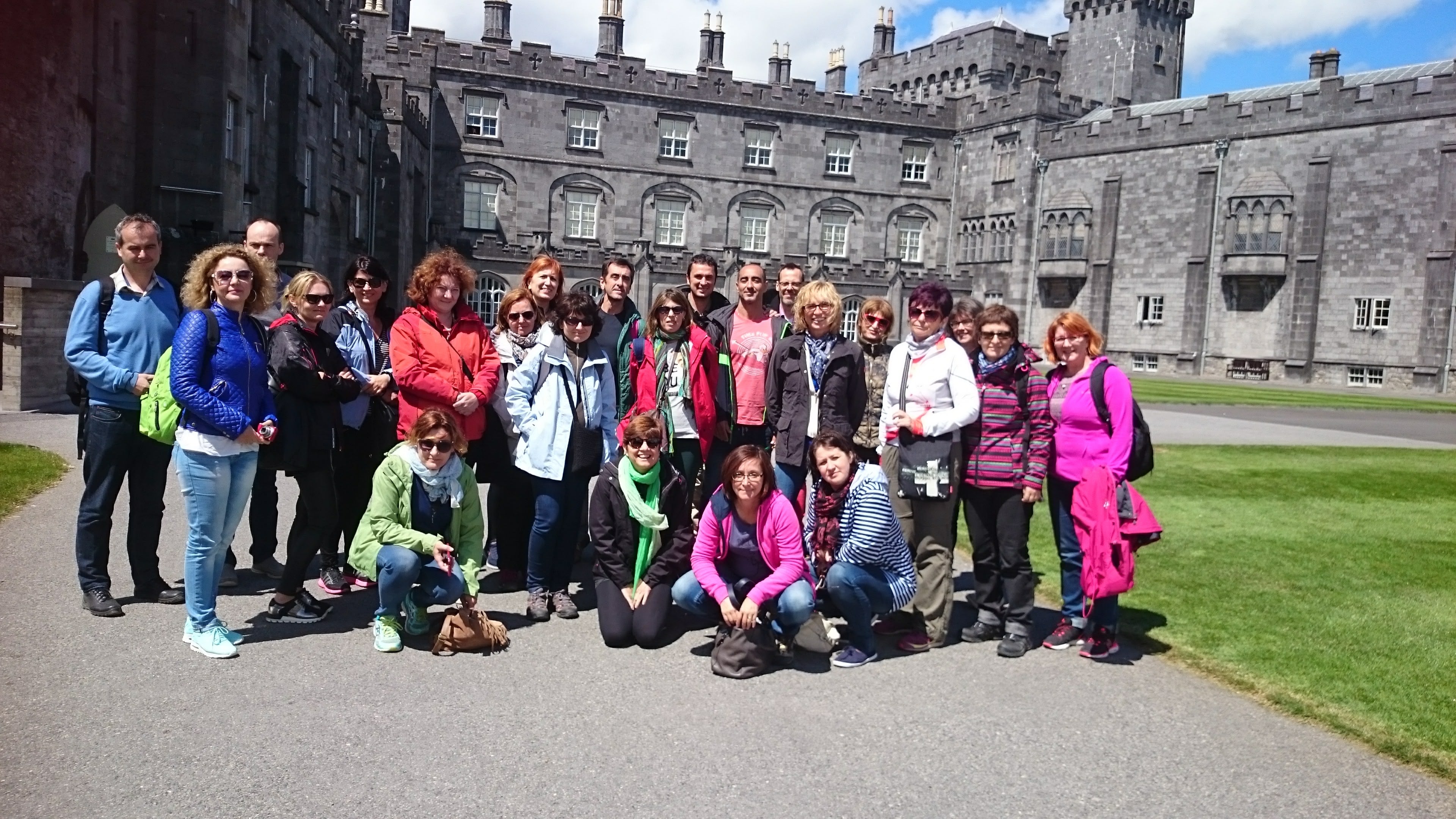
Full day trip to Belfast City, St Patrick Trial, Dundrum Castle and Mourne mountains. I reserved the trip at the tourist office. Inta Ekte, my colleague from Latvia was with me. There were other seven people from Germany, Canada(Hungary men that is leaving in Canada), Ohio. The driver was also the guide. Very kind and helpful, he told us and showed us a lot of things.
Belfast: so impressive the gates (open from 6am till 10pm) and the division from left (Britain) and right (Irish) parts of the city. This are worker class quartiers. The city centre looks like a neutral zone: John, Irish guide, said us because of the work. Most parts of people living in the separate zones work in the city centre and if you need to work you can’t fight…money talk….
Dawn is the city where there is the St. Patrick’s grave. We visit the Dawn Cathedral and the St Patrick’s centre watching the video about his live.
Dundrum Caste , The Old John Castle; the ruins situated on a hill give a magnificent view over the valley, the bay and the Mourne mountain.
By a narrow street we passed the mountains, went to the coastal road and than back in Dublin.
A friendly group with different people discussing about important topics: religion, brexit, UE.
In the evening, for dinner Beef and Guinness in casserole at The Old Stand.
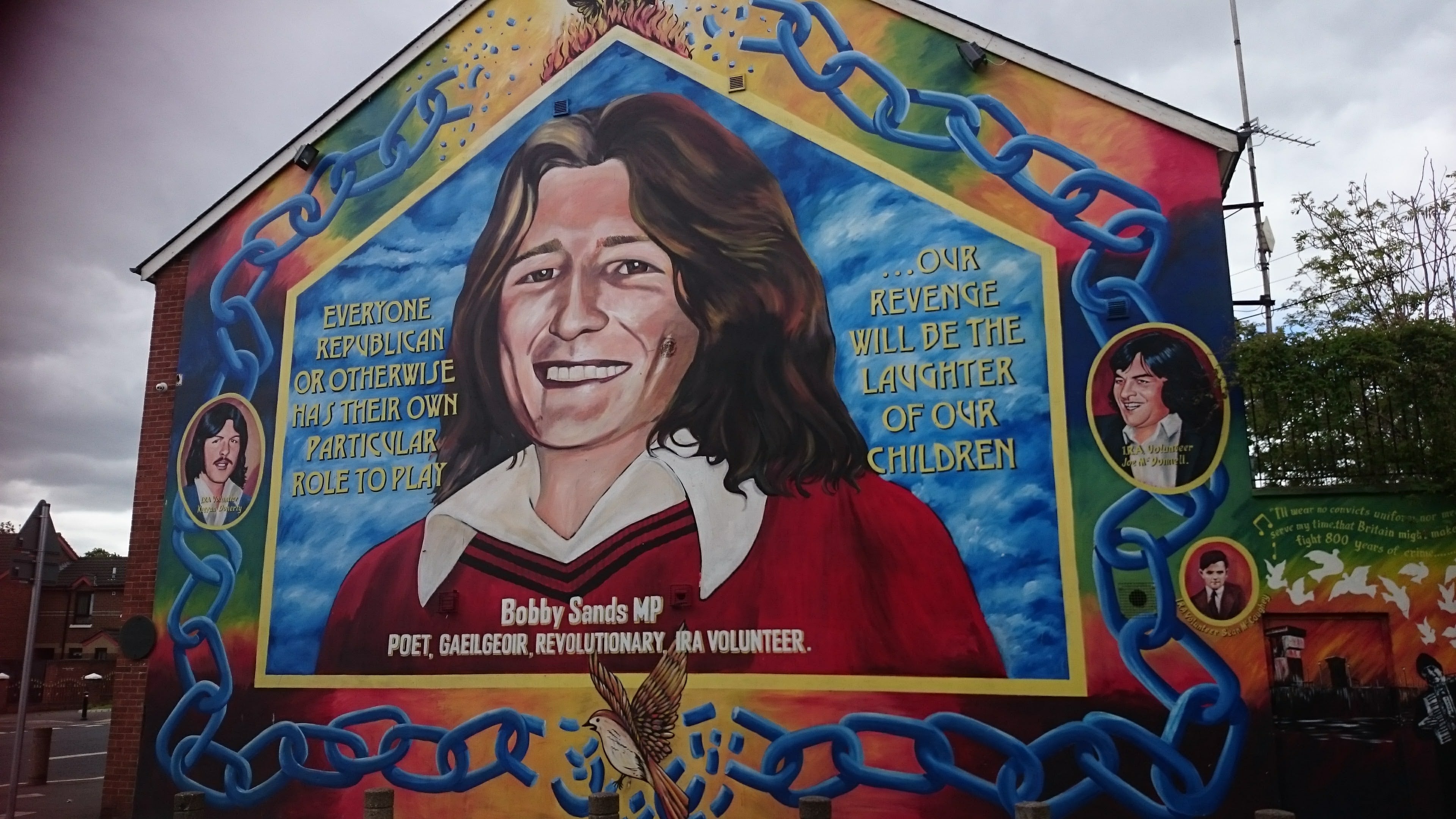
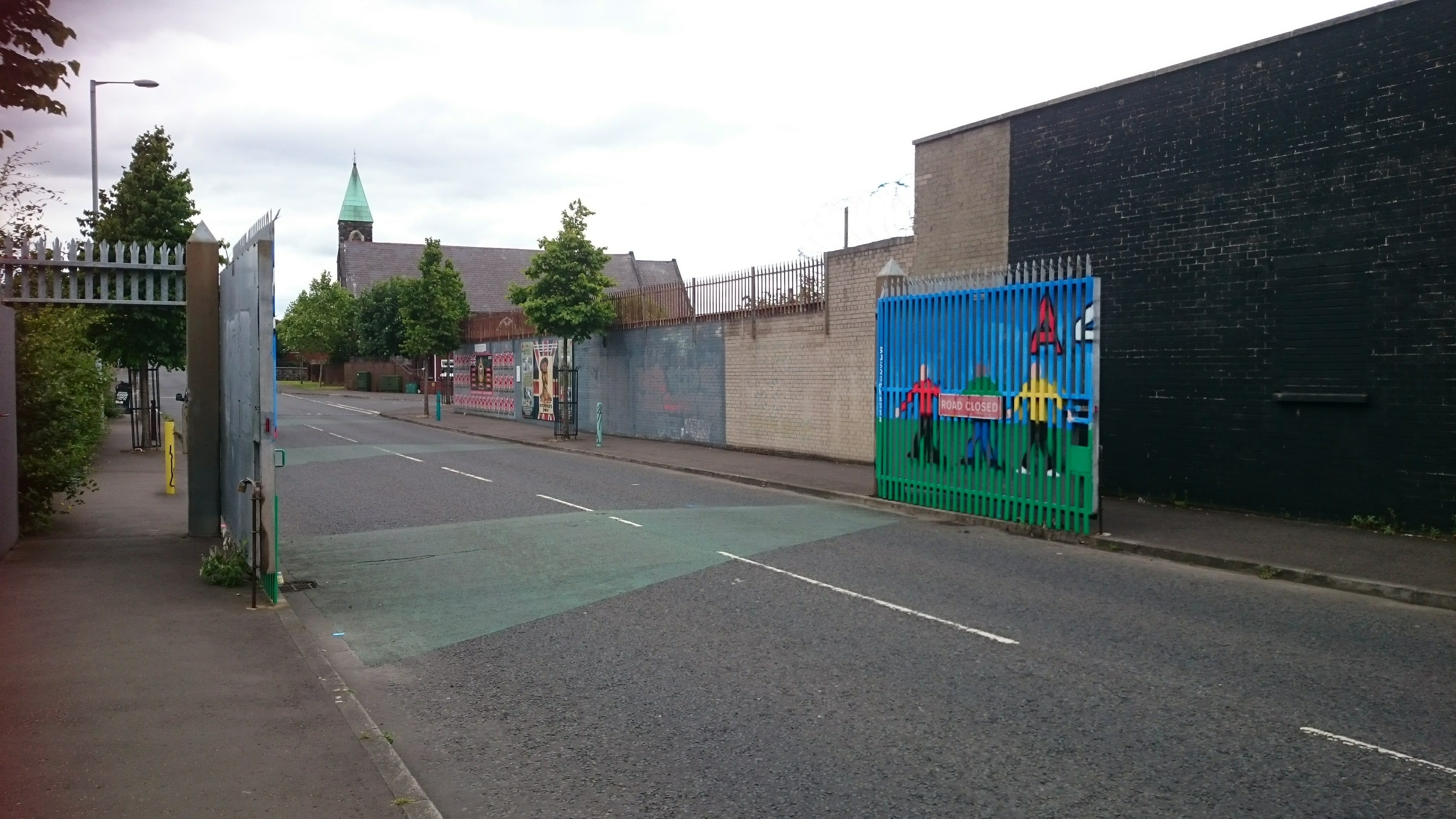
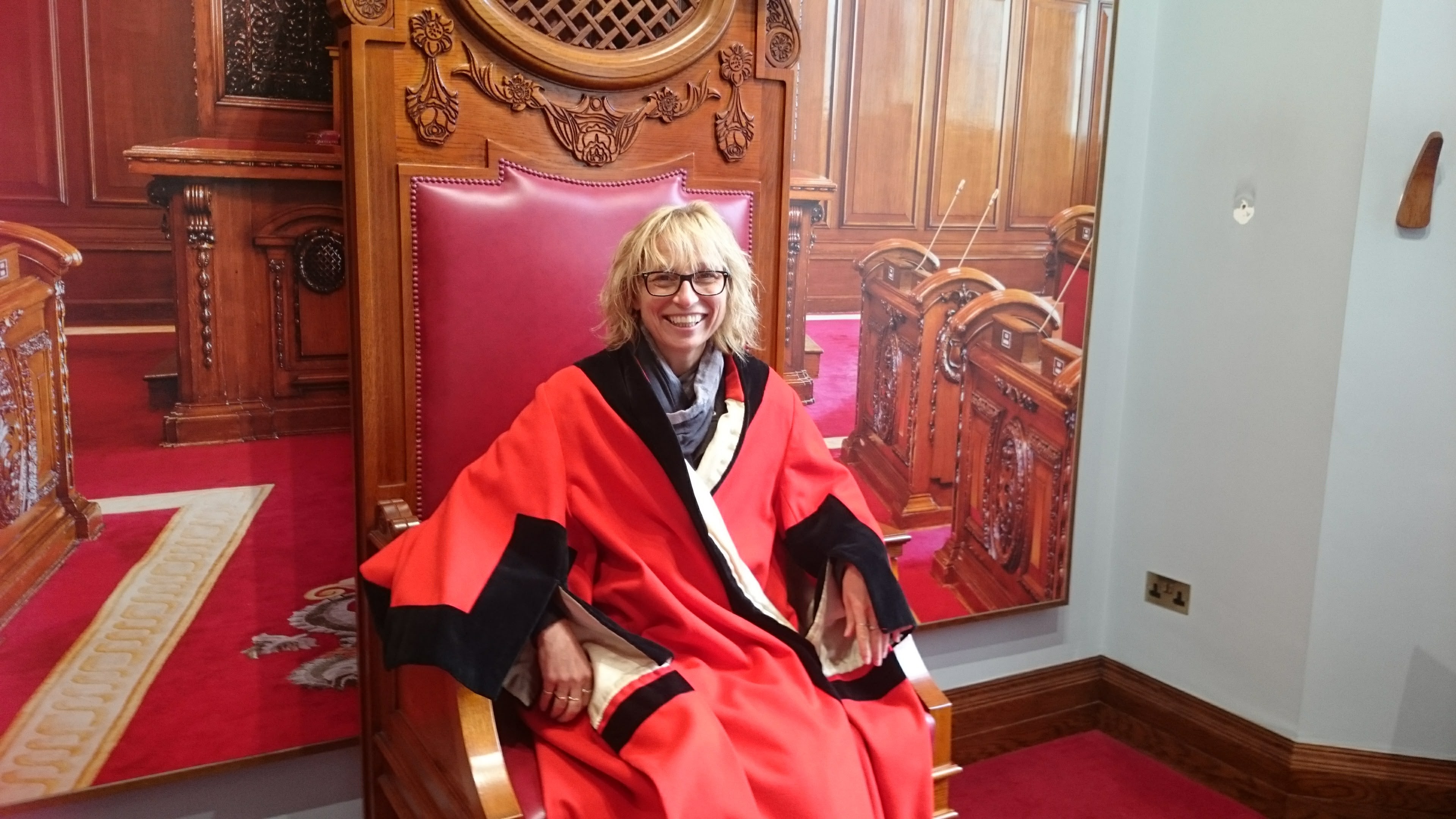
Pratical strategies in Clil . A lot of good and helpful learning style ideas (Funnel, fish,bones, ranking ladder, chain of linked events) and suggestions about program from the web. (Sutori, ISC collective, quirlet, DK find out, Kahoo.it, One stop English).
The last one it’s for high level baut really good for Hospitality and tourism (only 30 days trail for free) Very interesting Kahoo.it or .com for quiz.
In the evening: dinner at The Old Stand with chicken pie and after that in the Trinity kitchen international sharing ideas with Prosecco.
New strategies in Clil. Vocabuary and grammar support useful for improve through CLIL.
Sentences about encouragement and discipline
Role playing. Kahoot quiz.
Teachers: sharing knowledge about political and social events.
Thanks to Ciara great availability today with spoke about Northern Ireland and Belfast. Someone of us, me too, were in Belfast last Sunday.
Other great discussion about the educational system in our countries, comparing the subjects, the dress code and the religion influence.
Strategies:
Improve cognitive learning by working group using the cashing flow system to differentiate. Tray to involve students sharing different personal skills that each of them have, find a peer tutoring in each group.
Split in different group and give them in charge with different tasks, different difficulties: first step (simple) ex modified, second ex core, third ex extended tasks see photo and page 14 on Ciara padlet .
Split the group using name, idea like: three ice cream taste, three glass of different taste of beverage (orang drink, coke, lemonade), taste/slice of pizza etc…
Use “The Water cycle” like example including the 3A: analyse (the word that could be difficult), add (find a definition or synonymous or translation), apply (create something a diagram, a chain of link, events about the water…),
This could be a great idea for “W dove Vivo”: touristic presentation of your town, village…
I think that we are doing that with our “Flip Class” methodology.
By improving talk to talk Ciara find always the occasion that lead us to share a lot of ideas and experience, social and cultural tradition.
Sharing experience: dress code, lesson time per hour, education for a better word: i.b.o.org International Baccalaurate (Maggy from Poland, thay use this in their school) Worldskills.
Paella recipe with a grand-ma tutorial!
In the evening: The Riverdance at the Gaiety Theatre: song, music and dance from Ireland and other culture but in a Irish way. GREAT! Amazing! Two hour performance really involving. Could be a suggestion like an extra option in Erasmus Clil in Dublin.
Assessment in CLIL.
Which type of assessment, what standards are achievable or expected.
According with other subject, with other teacher/collegues that don’t use CLIL and parents.
Today CLIL is not considered at national level.
Teaching has been effective? It’s necessary is to assess progresses in content and not only in language.
Improve a qualification in CLIL.
Discussion on challenge in CLIL assessment: target to achieve in content and language, assessment during the final exams?
Discussion on type of assessment: sharing opinion and experiences.
Type: summative, formative, for learning: reflection, discussion, peer assessment, self assessment, criteria.
Strategies and tools for assessment. Portfolio assessment.
Support startegies: improve learner’s achievement in Clil assessment, find “accommodation” scaffolding tools.
I think that in our school we use a lot of these strategies. Personally I ask for a portfolio to students from the third year course, I use peer assessment during role playing and test self-assessment.
Workshop: what to do and not do with CLIL.
A final reflection: is CLIL working?
Eduardo Marin presented us the result of researches made by a collegues in Caen. Research are still in progress but now the evidence if than students with CLIL methodology perform as well as ones the use traditional methodology.
He insists on the necessity that teachers truth in CLIL and don’t stuck themselves because of the language.
IN THE EVENING
Farewell evening with Irish songs, and dance at the Teachers Club, 36 Parnell Square, Dublin 1.
All of us had been involved in dancing!
Good idea for friendship.
Dissemination in Erasmus.
To disseminate our knowledge it-s one of the competence of the teacher of twenty-first century.
Disseminate it’s a “must”. Dissemination means: to share good practices.
The process: communication-networking-dissemination (material, knowledge)-professional development-educational change (to understand the world).
Strategies
- What to disseminate
- Find the target groups
- How
Target groups: students, collegues, principal, member of the school board, of the professional countries, educational authorities, professional journal and websites, general, social media, etc
Some pratical approches for an effective dissemination:
Web2.0: web sites, blog, streaming video, whatsapp, newsletters, reports, articles, publication, conferences, workshop, e twinning
By English Matter’s dissemination strategies is possible find European partner. See forum
(Maria Luisa Perez Canado University of Jaen - Spain, Salvador de Madarloga)
Portfolio: presentations.
Evaluation: CERTIFICATE.
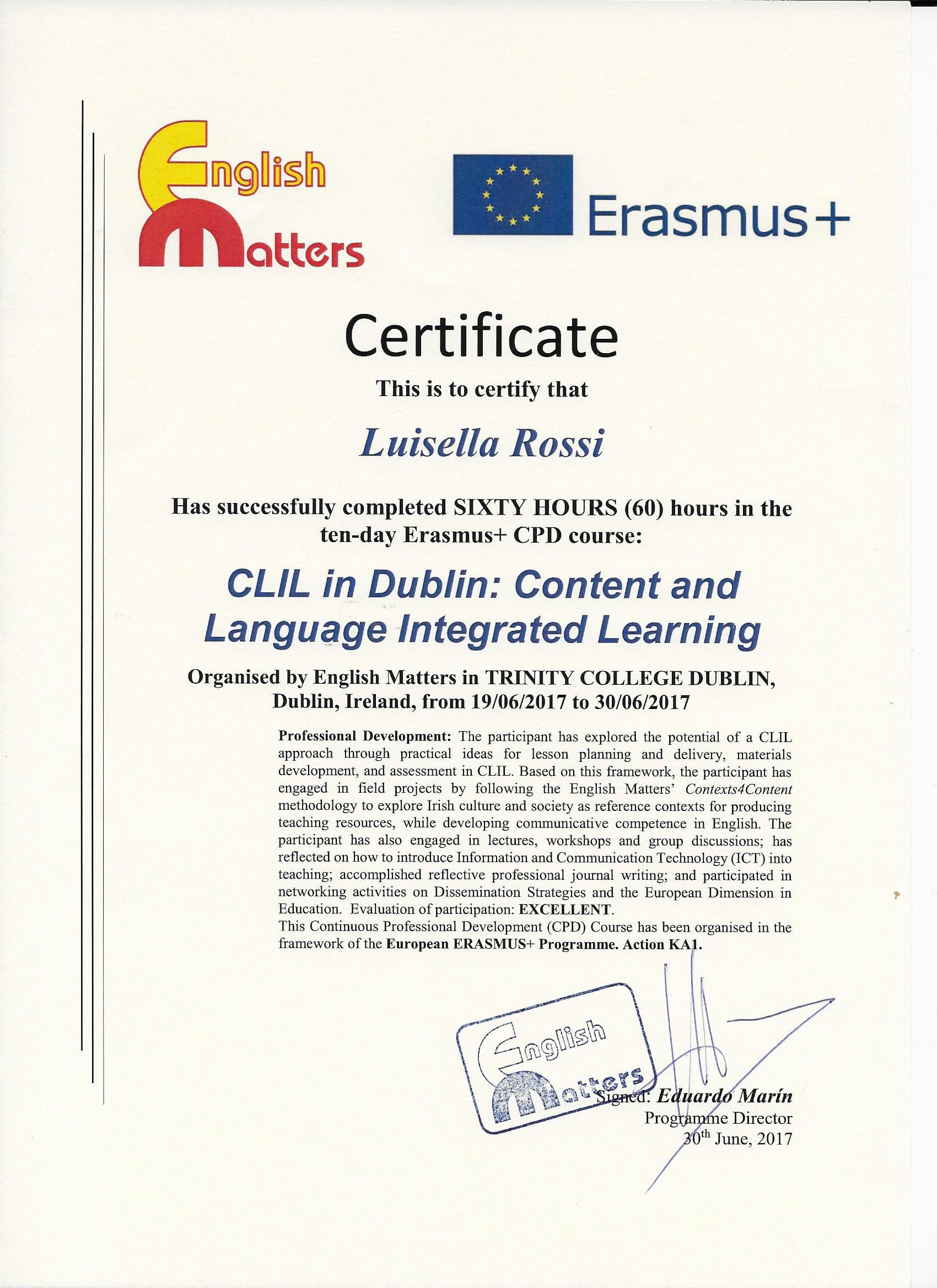

MY EXPERIENCE